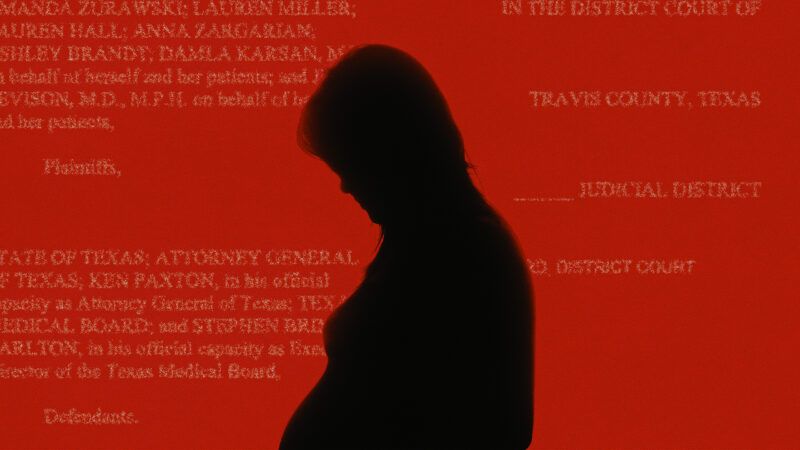Texas Attorney General Blocks Injunction, Will Keep Enforcing Anti-Abortion Law
For now, doctors who end pregnancies when a woman’s life is at risk can still be prosecuted.

A Texas judge issued a temporary injunction against the state's abortion ban on Friday, which exempted doctors from prosecution for abortions performed when pregnancy complications risked the mother's life or health, or when there were fetal abnormalities.
However, this injunction was itself blocked just hours later by an appeal from the state attorney general, leaving a final decision on the case to the Texas Supreme Court.
Travis County District Court Judge Jessica Mangrum issued an injunction against the law as part of a ruling in Zurawski v. State of Texas, a lawsuit brought by five Texas women who claim that they were denied medically necessary abortions due to unclear language in the state's abortion ban that left doctors unsure if they could legally provide an abortion.
According to the lawsuit, two plaintiffs experienced severe complications from miscarriages that went untreated due to the ban. The three other plaintiffs had fetuses with severe abnormalities that carried high risks of medical complications for the mother, like hemorrhaging.
Texas law currently bans almost all abortions, providing an exception only in the case of a "medical emergency," defined as a "life-threatening physical condition aggravated by, caused by, or arising from a pregnancy that, as certified by a physician, places the woman in danger of death or a serious risk of substantial impairment of a major bodily function unless an abortion is performed."
In their lawsuit, plaintiffs argue the law is too vague, leading doctors to deny them abortions—placing the women at risk—due to concerns that the women were not in sufficiently imminent danger of death for doctors to risk possible prosecution if they performed an abortion. Under the law, doctors who perform illegal abortions face life in prison.
"With the threat of losing their medical licenses, fines of hundreds of thousands of dollars, and up to 99 years in prison lingering over their heads," the suit states, "it is no wonder that doctors and hospitals are turning patients away—even patients in medical emergencies."
On Friday, Mangrum issued a temporary injunction, pending a final ruling on the case, against the portion of the state's abortion ban pertaining to medical emergencies.
"The Court finds that there is uncertainty regarding whether the medical exception to Texas's abortion bans . . . permits a physician to provide abortion care where, in the physician's good faith judgment and in consultation with the pregnant person, a pregnant person has a physical emergent medical condition," Mangrum wrote. "The Court further finds that any official's enforcement of Texas's abortion bans as applied to a pregnant person with an emergent medical condition for whom an abortion would prevent or alleviate a risk of death or risk to their health (including their fertility) would be inconsistent with the rights afforded to pregnant people under" the Texas Constitution.
Mangrum's ruling barred Texas from enforcing its abortion ban against doctors who provide abortions in cases where the patient has "a complication of pregnancy that poses a risk of infection or otherwise makes continuing a pregnancy unsafe for the pregnant person," "a condition exacerbated by pregnancy, that cannot be effectively treated during pregnancy, or that requires recurrent invasive intervention," or "a fetal condition where the fetus is unlikely to survive the pregnancy and sustain life after birth."
However, less than a day after the injunction was issued, the attorney general's office appealed the decision directly to the state's supreme court, effectively blocking the injunction and keeping existing laws in effect until the justices issue a ruling.
"Texas pro-life laws are in full effect," said a press release from the attorney general's office on Saturday. "This judge's ruling is not."


Show Comments (86)